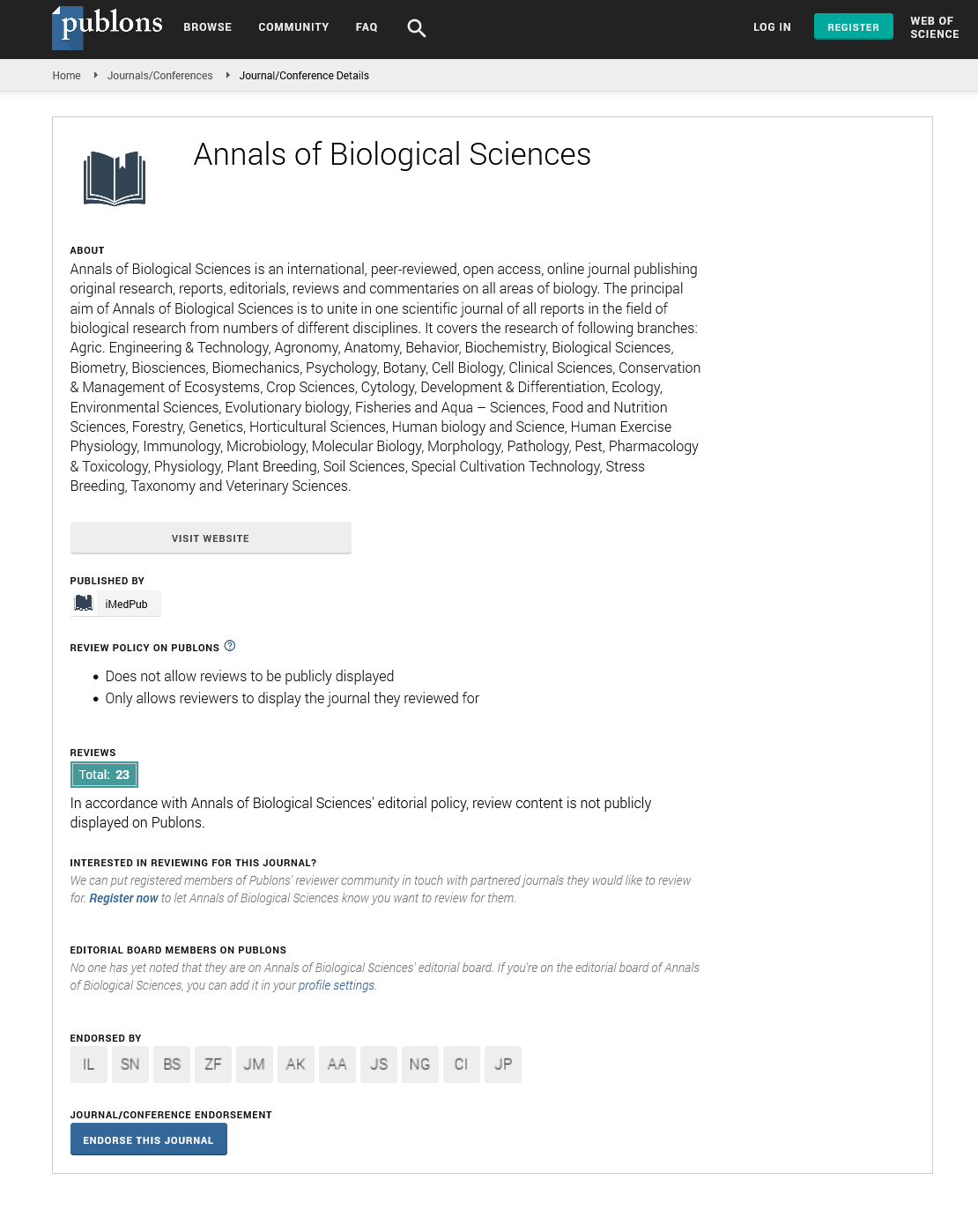ISSN : 2348-1927
Annals of Biological Sciences
Antagonistic effect of metallic nanoparticles on phyto-pathogenic fungi and bacteria
ANNUAL BIOTECHNOLOGY CONGRESS
August 17-18, 2017 | Toronto, Canada
Vera-Reyes I, Lira-Saldivar R H, Esparza-Arredondo IJE, Mendez-Arguello B and Garcia-Cerda L A
Centro de Investigaci├?┬│n en Qu├?┬şmica Aplicada, Mexico
Universidad Aut├?┬│noma Agraria Antonio Narro, Mexico
CONACYT-CIQA, Mexico
ScientificTracks Abstracts: Ann Biol Sci
DOI: 10.21767/2348-1927-C1-002
Abstract
In this study, we investigated the antimicrobial properties of pure zinc oxide nanoparticles (ZnO NPs), Cu NPs and Fe2O3 NPs, against two plant pathogenic fungi: Fusarium oxysporum, Alternaria solani and one bacterial strain: Clavibacter michiganensis, which are the main microorganisms responsible for severe diseases of a large number of agricultural crops. Metal nanoparticles were applied at various concentrations (0, 250, 500 and 1000 mg L-1) to determine their in vitro antimicrobial activity. We synthesized ZnO NPs at room temperature by using a mechanically assisted metathesis reaction that permitted the formation of spherical NPs with mean sizes of around 20-30 nm. NPs characterization was accomplished by X-ray diffraction; particles size and shape were determined by TEM. We compared the effect of engineered NPs against commercial Cu and Fe2O3 NPs of similar size and shape. Antifungal activity of NPs was evaluated on PDA media, and King├?┬┤s B medium was used for bacteria. ANOVA and Tukey multiple range tests were employed to analyse data. Cu NPs showed the greatest antimicrobial activity against both fungal strains, followed for ZnO NPs. In contrast, ZnO produced maximum growth inhibition against the bacteria C. michiganensis. On the other hand, Fe2O3 NPs did not exhibit antimicrobial activity with these phytopathogenic strains. Based on these results, it is viable that tested ZnO and Cu NPs could be used in programs of sustainable agriculture, since they are required in minute quantities by comparison to conventional pesticides.
Biography
Vera-Reyes I has completed her PhD from the Centro de Investigación en Estudios Avanzados del Instituto Politecnico Nacional, Mexico D F. She is a CONACYT Research Fellow.
Google Scholar citation report
Citations : 406
Annals of Biological Sciences received 406 citations as per Google Scholar report
Annals of Biological Sciences peer review process verified at publons
Abstracted/Indexed in
- Google Scholar
- China National Knowledge Infrastructure (CNKI)
- WorldCat
- Publons
- ROAD
- Secret Search Engine Labs
Open Access Journals
- Aquaculture & Veterinary Science
- Chemistry & Chemical Sciences
- Clinical Sciences
- Engineering
- General Science
- Genetics & Molecular Biology
- Health Care & Nursing
- Immunology & Microbiology
- Materials Science
- Mathematics & Physics
- Medical Sciences
- Neurology & Psychiatry
- Oncology & Cancer Science
- Pharmaceutical Sciences
